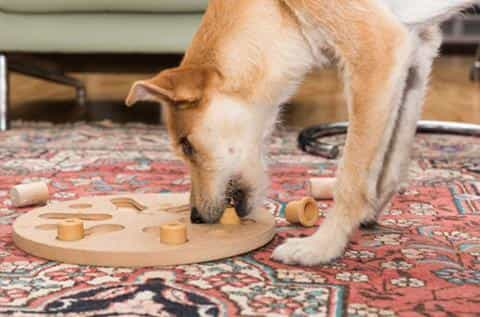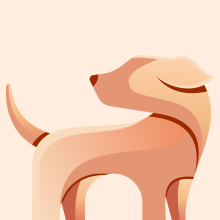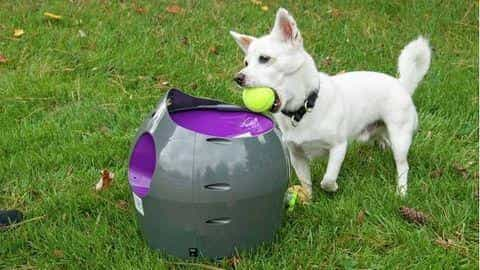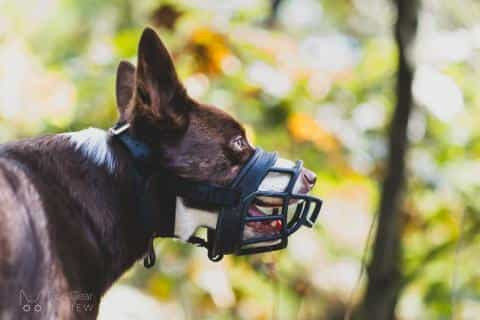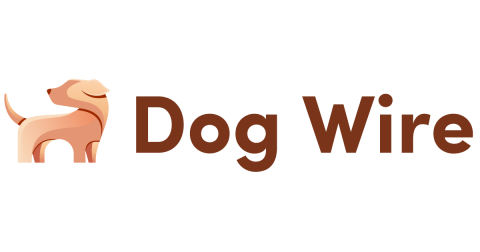
Published on March 14 by Julia
Easter is a time for family gatherings, festive celebrations, and plenty of fun activities. But for dog owners, it’s important to ensure our furry friends are included in the festivities safely. From engaging activities to crucial safety precautions, here’s everything you need to know about celebrating Easter with your dog.
Create a special Easter egg hunt tailored for your pup! Instead of chocolate or candy-filled eggs, hide dog-friendly treats or toys around the yard or house. Use plastic eggs with holes to let the scent escape or simply hide the treats themselves. This activity provides mental stimulation and keeps your dog engaged.
Bake some homemade, Easter-inspired treats using dog-safe ingredients like peanut butter, pumpkin, or oats. You can shape them into bunny or egg designs for added festivity. Avoid using artificial sweeteners, especially xylitol, which is toxic to dogs.
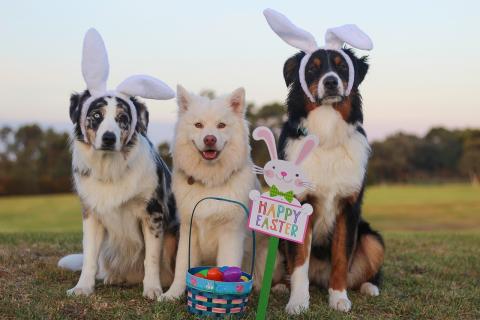
Get your pup into the Easter spirit with a fun costume, such as bunny ears or a pastel bandana. Set up a festive backdrop with flowers and Easter decorations to capture adorable holiday photos.
Many pet stores sell holiday-themed toys, such as plush bunnies or egg-shaped squeaky toys. These can provide hours of fun while keeping your dog entertained.
Host a picnic with dog-friendly foods like cooked lean meats, carrots, apples, and peanut butter treats. Be sure to keep human foods that are dangerous to dogs, such as onions, grapes, and chocolate, out of reach.
Chocolate contains theobromine, which is toxic to dogs. Even small amounts can cause vomiting, diarrhea, increased heart rate, and seizures. Additionally, many Easter candies contain xylitol, an artificial sweetener that can be deadly for dogs.
Decorative Easter grass found in baskets can be a choking hazard or cause digestive blockages if ingested by dogs. Opt for shredded paper or pet-safe alternatives instead.
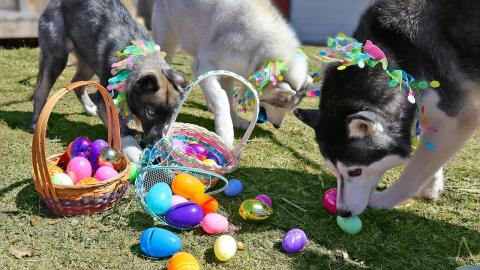
Easter lilies and other spring flowers, such as tulips and daffodils, can be toxic to dogs if eaten. Keep these plants out of reach or opt for pet-safe flowers like roses or sunflowers.
If you have an Easter egg hunt for children, keep an eye on your dog to ensure they don’t eat plastic eggs, foil-wrapped chocolates, or other small objects that could be harmful.
Easter meals often include foods that are harmful to dogs, such as ham (high in sodium), onions, garlic, and rich desserts. Make sure guests know not to feed your dog table scraps, and offer dog-safe treats instead.
If your dog enjoys dressing up, ensure their costume is comfortable and doesn’t restrict movement, breathing, or vision. Also, be mindful of decorations that could be knocked over or chewed on.
Easter can be an enjoyable and safe celebration for your dog with the right precautions. By incorporating fun, dog-friendly activities and being mindful of potential hazards, you can create a holiday experience that’s enjoyable for both you and your furry companion. Have a paw-some Easter!
Discover More Content
